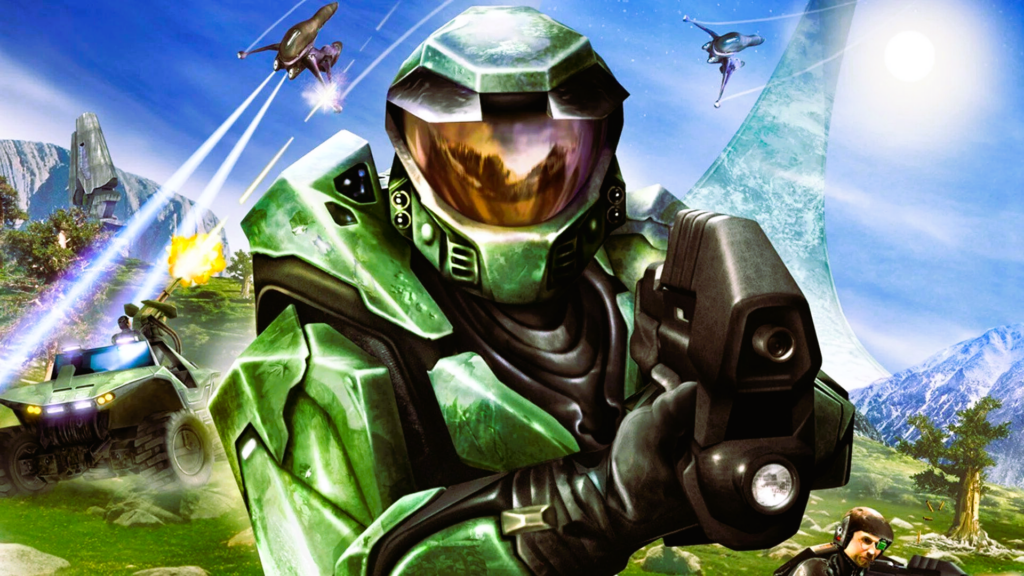When Soundtracks Define Success: Iconic Examples in Gaming History
Video game music has always been more than just background noise. In many cases, it plays a crucial role in creating the atmosphere, driving the narrative, and deepening player engagement. An iconic soundtrack can elevate a game from being just another title on the shelf to a timeless classic, forever etched in players’ memories. Over the years, several games have proven that when soundtracks are done right, they can define the success and lasting legacy of a game. Here are some of the most iconic soundtracks in gaming history that helped define their respective games.
The Role of Music in Gaming
The relationship between music and video games has grown considerably since the early days of the industry. In the beginning, video game music was restricted to simple, looping 8-bit or 16-bit tracks due to the technological limitations of consoles. However, as gaming technology advanced, so did the complexity of the soundtracks. Music in video games now serves a variety of purposes—from evoking emotions to providing cues for gameplay or reinforcing the themes of the story.
Today, video game music has become an art form in its own right, with composers creating stunning, dynamic scores that can stand on their own outside of the gaming world. Music is often as much a part of a game’s identity as its characters and settings.
1. Super Mario Bros. (1985)
The Super Mario Bros. theme, composed by Koji Kondo, remains one of the most instantly recognizable pieces of video game music. The upbeat, catchy tune accompanied Mario’s journey through the Mushroom Kingdom, helping the game transcend its medium and become a pop culture phenomenon. The melody’s simplicity, energy, and repetitive structure made it perfect for a game that required players to stay focused while progressing through multiple levels. The theme’s ubiquity has ensured that Super Mario Bros. continues to be one of the most successful and influential video games of all time.
The music’s role in the game cannot be overstated; it’s as iconic as Mario himself. Over time, this soundtrack evolved into the musical foundation for an entire series of games, helping Mario’s adventures remain a cornerstone of Nintendo’s franchise.
2. The Legend of Zelda: Ocarina of Time (1998)
The Legend of Zelda: Ocarina of Time is often considered one of the greatest video games ever made, and much of that success can be attributed to its masterful soundtrack, composed by Koji Kondo. The game introduced players to a wide variety of musical motifs, including the now-famous ocarina songs, which are central to the gameplay and plot. Each song played on the ocarina had a specific purpose, such as changing the time of day or summoning a specific event, adding a layer of interactivity to the game’s music.
More than just a gameplay tool, the music of Ocarina of Time captures the essence of its world, blending moments of adventure, melancholy, and triumph. Tracks like “Zelda’s Lullaby,” “Gerudo Valley,” and “Song of Storms” are just a few examples of how the soundtrack helped elevate the game’s narrative and emotional depth, making it one of the most beloved games in the Zelda series.
3. Final Fantasy VII (1997)
The music of Final Fantasy VII, composed by Nobuo Uematsu, is not only a highlight of the game but also a defining feature of the Final Fantasy series as a whole. Final Fantasy VII’s soundtrack stands out for its orchestral complexity, emotional range, and its ability to complement the game’s storyline. Uematsu’s music helped immerse players in the intricate world of Gaia, making the game’s story of love, loss, and redemption even more poignant.
Iconic tracks like “One-Winged Angel” and “Aerith’s Theme” became symbols of the game’s most significant moments. “One-Winged Angel,” with its powerful choir and orchestra, is often cited as one of the most memorable video game themes of all time. The soundtrack became so iconic that it was performed live in concerts around the world, further solidifying Final Fantasy VII as a game where music played a pivotal role in its success. Read our comparison of Original vs. Adapted Soundtracks.
4. Halo (2001)

Halo, the iconic first-person shooter by Bungie, is another game where the music plays an essential role in defining the experience. Composed by Martin O’Donnell and Michael Salvatori, the Halo soundtrack features a mixture of Gregorian chants, orchestral arrangements, and military-style drumming that helped establish the game’s atmosphere. The main theme, with its soaring strings and powerful choir, is one of the most recognizable pieces of video game music.
The soundtrack’s blend of choral and orchestral elements gives Halo its epic, cinematic quality, turning every battle into a moment of heroism. The success of Halo wouldn’t have been the same without the music, as the soundtrack is as synonymous with the franchise as its protagonist, Master Chief.
5. Red Dead Redemption 2 (2018)
The soundtrack for Red Dead Redemption 2 played a crucial role in immersing players in the world of the American frontier. Composed by Woody Jackson, the game’s music draws from a variety of genres, including orchestral, folk, and blues. The score helps convey the game’s narrative and emotions, whether it’s the sorrow of a character’s loss or the excitement of an action-packed shootout.
The emotional depth of the music, combined with its ability to match the game’s ever-changing environments, helped Red Dead Redemption 2 stand out as a masterpiece in both gaming and music. The soundtrack was widely praised for its dynamic and thematic approach, enhancing the immersion and storytelling of the game.
Iconic video game soundtracks play a crucial role in shaping a game’s identity and success. From the simple melodies of Super Mario Bros. to the orchestral compositions of Final Fantasy VII and Halo, music helps define the mood, support the narrative, and immerse players in the game world. As the gaming industry continues to evolve, the importance of music in creating memorable and impactful experiences will only grow.
For more information on video game music and its history, check out the Wikipedia page on Video Game Music.
